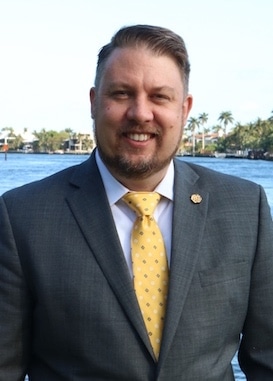As featured in the Island Packet.
I often hear that it takes a village to raise a child. What I don’t often hear is people defining what constitutes a village.
Part of the privilege of the vocation that I have been called to is that, on a day to day basis, I get to work will all ages of people from tiny children to elder men and women. With youth comes a newness and vigor to each new occasion. With age typically comes wisdom from experience. Both of these ways of looking at the world enhance us all and grow us as people giving perspective that helps to inform us what it means to live as human beings.
As such, I have learned over the years is that, community is best when it integrates all of these ages and their gifts. It might be asked though in contemporary society: What places draw such occasion where all such parties can congregate and interrelate with one another in order to experience the wonders that individuals have to offer each other in community?
Schools and colleges offer community but primarily at distinct age ranges. Pubs, social clubs and the like encounter the same issues. Recreational facilities often are multi-age but rarely does genuine intergenerational interaction occur there.
It used to be the case that persons could get such intergenerational nurture within their immediate family even. As a child I had the privilege of growing up surrounded by grandparents and even great grandparents who expanded my worldview and brought much needed perspective to my life. But in a growing technological society, families are often required to move great distances away from one another for employment. And, even with the new benefits of technology, the absence of physical proximity becomes apparent and sorely missed.
To complicate the issue further, the increasing lack of stable basic family units tends lend itself to a personal self-destructive behavior at all ages. Just in our teenage population within the greater Hilton Head Island and Bluffton vicinity I have personally encountered students that have alcohol and drug addictions of all sorts; who are actively cutting themselves; who suffer from bulimia and/or anorexia; who are suicidal, and whom have been physically abused to name just a few awful things.
But we shouldn’t kid ourselves that such problems are simply limited to teens. Lack of care extends well into adulthood and senior citizenship and the symptoms of such deficiencies are not as unobvious as one might think. Again, drug, alcohol and addictions of all sorts arise. Increased depression and/or anxiety can manifest itself concretely in relationships in ways that can be commonly seen. Infidelity, divorce, domestic violence, and illegality of all sorts can become commonplace.
So how can we begin to overcome some of these issues in our community, for our children and ourselves?
Personally, I think that we need to take some personal responsibility in our understanding that we as human beings desperately, long term, need each other in community.
Right now in society there is only one type of place where I see the kind of intergenerational care that is needed happening -and that in our communities’ religious establishments. Few other places in the world can a parent’s newborn get an immediate adoptive grandparent, the elder get the assistance and care that they urgently need, the adult get the essential counsel and support that will help them to carry on. More than that though – even when everything seems to be just fine with our lives we must remember that part of being human means learning, loving and growing in community.
Thus the opportunity for personal and community health is there. The question remains: Will we avail ourselves of it?






























Hi there,I check your blog named “Why We Need Intergeneration Care | http://www.christopherbenek.com” on a regular basis.Your humoristic style is witty, keep up the good work! And you can look our website about proxy server list.